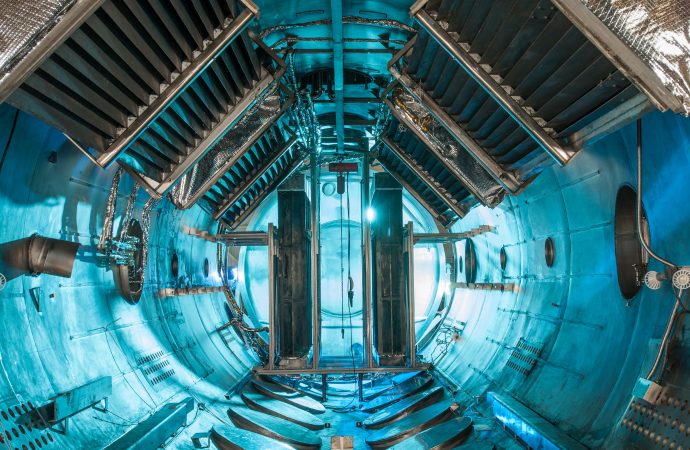Artificial Intelligence (AI) is revolutionizing the world as we know it. It has already transformed industries, improved efficiency, and made our lives easier in so many ways. But what does the future hold for AI? With advancements happening faster than ever before, it’s important to stay up-to-date on the latest developments. In this blog post,
Artificial Intelligence (AI) is revolutionizing the world as we know it. It has already transformed industries, improved efficiency, and made our lives easier in so many ways. But what does the future hold for AI? With advancements happening faster than ever before, it’s important to stay up-to-date on the latest developments. In this blog post, we will explore five must-know topics that are shaping the future of AI and how they will impact our lives in exciting new ways. So buckle up and get ready for a glimpse into what lies ahead!
What is AI?
AI, or artificial intelligence, is a term that refers to the ability of a machine to perform tasks that ordinarily require human intelligence, such as understanding natural language and recognizing objects. AI research deals with the question of how to create computers that are capable of intelligent behaviour.
In practical terms, AI applications can be deployed in a number of ways, including:
1. Machine learning: This is a method of teaching computers to learn from data, without being explicitly programmed.
2. Natural language processing: This involves teaching computers to understand human language and respond in a way that is natural for humans.
3. Robotics: This involves the use of robots to carry out tasks that would otherwise be difficult or impossible for humans to do.
4. Predictive analytics: This is a method of using artificial intelligence to make predictions about future events, trends, and behaviours.
What are the different types of AI?
There are three main types of AI: rule-based, decision tree-based, and neural network-based.
Rule-based AI is the simplest form of AI. It relies on a set of rules that are defined by humans to make decisions. This type of AI is often used in simple tasks like identifying spam emails or flagging potential fraudsters.
Decision tree-based AI is more complex than rule-based AI. It uses a set of decision trees to make decisions. Decision trees are a series of if-then-else statements that help the AI narrow down its options and make a decision. This type of AI is often used in more complex tasks like credit scoring or fraud detection.
Neural network-based AI is the most complex type of AI. It uses a series of interconnected artificial neurons to make decisions. Neural networks are similar to the human brain in that they can learn and adapt over time. This type of AI is often used in tasks that require pattern recognition, such as facial recognition or voice recognition.
What are some applications of AI?
Applications of AI are becoming more commonplace and widespread as the technology continues to develop. Here are some examples of how AI is being used today:
-Autonomous vehicles are beginning to hit the roads, with Tesla, Google, and Uber leading the way. These cars use AI to navigate without human input.
-A number of companies are using AI for customer service, including Amazon’s Alexa and Apple’s Siri. These voice assistants can handle basic tasks and questions, freeing up humans for more complex work.
-AI is being used in healthcare to diagnose diseases, predict patient outcomes, and provide personalized treatment recommendations.
-Financial institutions are using AI to detect fraud, manage risk, and make investment decisions.
– Retailers are using AI for things like product recommendations and targeted marketing.
How is AI changing the workforce?
1. How is AI changing the workforce?
There is no doubt that artificial intelligence (AI) is revolutionizing the workplace. With its ability to automate repetitive tasks, boost efficiency and productivity, and provide decision support, AI is transforming how work gets done across industries. Here are some specific ways AI is changing the workforce:
Task Automation: One of the most obvious ways AI is impacting the workforce is through task automation. By automating routine tasks, AI frees up workers to focus on higher-level tasks that require human skills such as creativity, problem-solving, and emotional intelligence.
Increased Productivity: In addition to automating routine tasks, AI can also help workers be more productive in their roles by providing real-time feedback and recommendations. For example, Google’s “Smart Compose” feature uses AI to suggest completion of sentences as users are typing emails. This not only saves time, but also reduces errors and improves communication.
Decision Support: As businesses increasingly rely on data to make decisions, AI is playing an important role in providing decision support. By analyzing data faster and more accurately than humans can, AI can help identify patterns and trends that would otherwise be missed. This information can then be used to make better decisions about everything from product development to marketing campaigns.
What are some ethical concerns with AI?
There are many ethical concerns that arise with the development and use of artificial intelligence (AI). One worry is that as AI gets smarter, it could become very good at making decisions that humans are not good at making. This could lead to a future where AI is making most of the important decisions in society, and humans may not be able to understand or control these decisions. Additionally, there is a risk that AI could be used to exploit or harm people, as well as manipulate or deceive them. For example, an AI system might be biased against certain groups of people if its algorithms are not properly designed or monitored. Finally, the increasing use of AI could lead to job losses as machines begin to replace humans in many tasks.
Conclusion
Artificial Intelligence is an ever-evolving field and understanding the future of AI is paramount. We hope that this article has provided some insight into the five must-know topics for the Future of AI, so that you can stay up to date with what’s happening in this area. Understanding these topics will help keep you informed as new technologies are developed and implemented, allowing us to create more efficient systems for our society’s benefit.





















Leave a Comment
Your email address will not be published. Required fields are marked with *